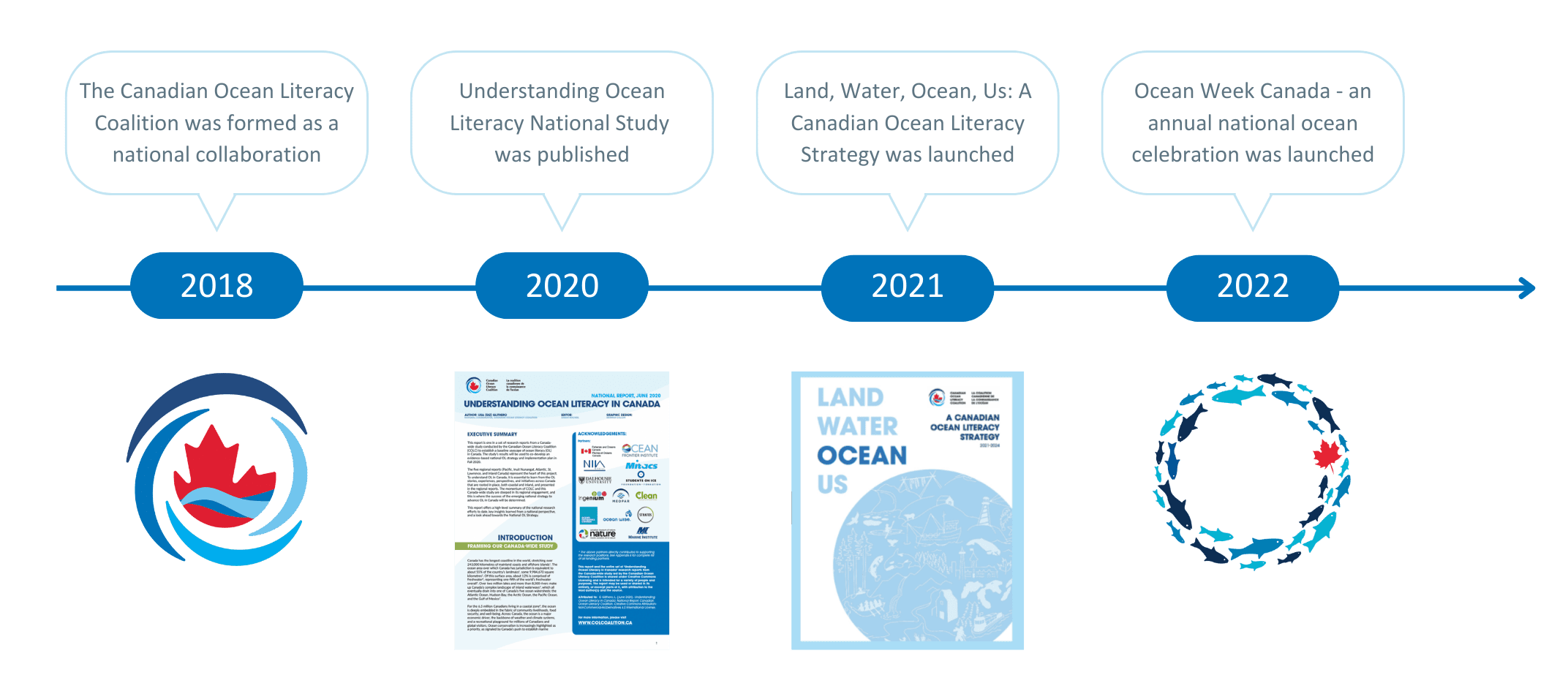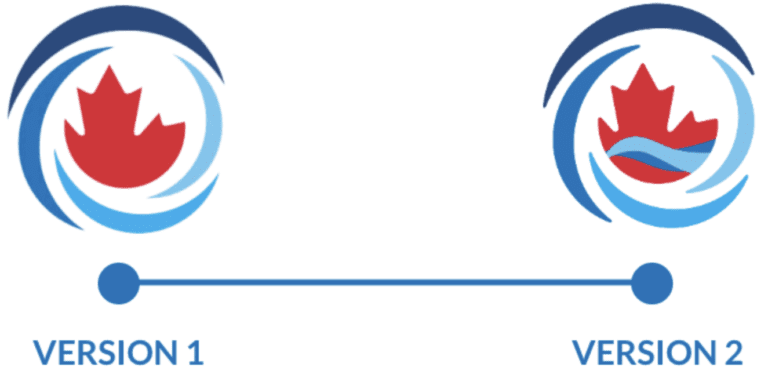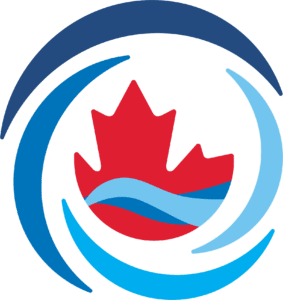About us

Our Story
COLC grew out of a small 40-person informal consultation (February-March, 2018) and a national workshop, Towards a Canadian Ocean Literacy Strategy: A preliminary dialogue and forward planning workshop, as part of the Ocean Research in Canada Alliance (ORCA) Conference in April 2018. These events led to the creation of the report, A Development Plan: Building a National Ocean Literacy Strategy in June 2018.
This initial project was instigated by the Ocean Frontier Institute at Dalhousie University, with funding support from Fisheries and Oceans Canada. The project was further supported by an informal national steering committee composed of representatives from the Canadian Museum of Nature, Ingenium, Ocean Networks Canada, Ocean Wise, the Canadian Network for Ocean Education (CaNOE), and the SOI Foundation.
COLC formally launched on September 20th, 2018, in Halifax, Nova Scotia, at the Oceans Inspiration Expo, which was held as part of the G7 Ministerial Meeting on Working Together on Climate Change, Oceans, and Clean Energy.
Since inception, COLC has operated as an independent national project office with initial administrative headquarters at the Canadian Museum of Nature and Dalhousie University (2018-2021). Ocean Networks Canada at the University of Victoria served as COLC’s second administrative home from April 2021 to March 2024. Currently, Dalhousie University (Ocean Frontier Institute) serves as COLC’s administrative headquarters.
COLC’s initial project was to lead a Canada-wide research initiative to better understand Canadians’ varying relationships with the ocean and to examine how ocean literacy is understood and practiced across the country.
In June 2020, COLC published the regional and national reports of the Understanding Ocean Literacy in Canada study, establishing the first research baseline of ocean literacy in Canada. Findings from this study directly informed the co-development of Land, Water, Ocean, Us: A Canadian Ocean Literacy Strategy and the accompanying Implementation Plan: Pathways for Collaboration (published in March 2021), making Canada the first country in the world with a national ocean literacy strategy.
Watch COLC's 5 year anniversary video!
Key Milestones

Our Mandate
We are nationally and globally recognized as a catalyst and centre for ocean literacy collaboration, research, and innovation.
We convene collaborative action across regions, sectors, and scales to advance ocean literacy in Canada
We oversee the National Strategy implementation and impact measurement
We coordinate joint funding and a community grant program to support local initiatives and organizations
We co-design and lead ocean literacy research in Canada and internationally
We engage and provide leadership in Canada‘s contributions to the UN Ocean Decade and the global ocean literacy movement
Our Team
National Project Office Team
Diz is an award-winning educator, social science researcher, and leader focused on environmental conservation, public engagement, and collaborative action. She connects people, ideas, and efforts to generate positive impact.
diz@colcoalition.ca
Diz Glithero
Executive Director
Roxanne is a project and administrative professional with a background in Conservation & Land Management and Travel. They excel at creating efficiencies, problem solving and leveraging technology.
roxanne@colcoalition.ca
Roxanne Barney
Operations Manager
Meg is a science communicator with a background in Zoology and animal behaviour. She is passionate about engaging the public through visual media and creating connections to local waterways.
meghan@colcoalition.ca
Meg Callon
Communications & Design Manager
Jen is a social science researcher with a background in natural and social sciences. Her work engages participatory methods that invite critical perspectives, place-based narratives, and creative solutions to shared challenges.
jen@colcoalition.ca
Jen McRuer
Research Manager
Iwinet is a strategic marketer with a background in public relations and marketing. She specializes in simplifying complex messages for greater impact and is passionate about ethical, purpose-driven marketing strategies.
iwinet@colcoalition.ca
Iwinet Stewart
Digital Marketer & Social Media Specialist
Eva is a Master of Marine Management Candidate at Dalhousie University, with a background in marine biology. She is passionate about coastal protection, community engagement, and the power of art and storytelling to deepen connections to the ocean and inspire collective action.
eva@colcoalition.ca
Eva Carmichael
Communications Intern & Masters Researcher
Advisory Board
- Andrea White, Fisheries and Oceans Canada (ON)
- Dany Dumont, Université du Québec à Rimouski, Réseau Québec Maritime, ISMER (QC)
- Diz Glithero, Canadian Ocean Literacy Coalition (QC)
- Janet Stalker, Consultant (NS)
- Jasveen Brar, Max Bell Foundation (AB)
- Kathy Brown, Seequest Development (BC)
- Marie-Chantal Ross, National Research Council of Canada (ON)
- Michelle MacArthur, Ocean Frontier Institute, Dalhousie University (NS)
- Sandy Bligh, Ocean Networks Canada (BC)
Our Logo
At the time of COLC’s launch, the original logo was developed with four blue arcs encircling a red maple leaf. These blue arcs represent Canada’s three ocean coastlines – Atlantic, Arctic, Pacific – as well as the extensive ‘inland’ coastline stretching along the Great Lakes and St. Lawrence River. The largest arc at the top of the logo represents the Arctic coastline, which accounts for 50% of Canada’s coastline overall.

As of the National Strategy launch in 2021, COLC’s logo appears with a braided stream of blue running through the centre of the maple leaf. This addition is in recognition of the complex, interconnected freshwater systems that form the heart of inland Canada, and through which every Canadian, regardless of where they live, is connected to the ocean.
